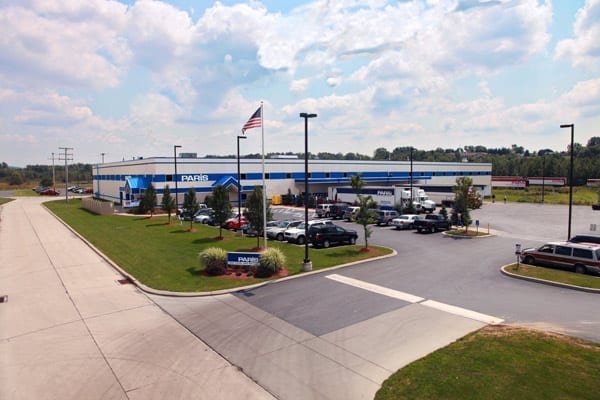Heavy mold growth was found in the linens of two University of Pittsburgh Medical Center (UPMC) hospitals, leading to the death of five people since October 2014. Now a sixth wrongful death lawsuit, this one stemming from a third UPMC facility, Shadyside Hospital, was filed on Tuesday.
Heavy mold growth was found in the linens of two University of Pittsburgh Medical Center (UPMC) hospitals, leading to the death of five people since October 2014. Now a sixth wrongful death lawsuit, this one stemming from a third UPMC facility, Shadyside Hospital, was filed on Tuesday. 65-year-old John Haines died on October 7th, just a few days after contracting an pneumonia infection. Haines was a leukemia patient who was undergoing chemotherapy treatments at Shadyside. He was transferred to intensive care three days prior to this death and within 24 hours contracted a fatal fungal infection.
The same day that Haines passed away, the patient received a notice from the patient safety center of Shadyside acknowledging that he had indeed contracted an infection during his stay and advising him to reach out to UPMC’s Infection Prevention and Control Department immediately for further investigation. The civil complaint filed in court by Haines’ family alleged that the patient had picked up a rhizopus positive infection due to Paris Companies linens the hospital provided him with during his stay. Paris Companies was contracted to provide linens for UPMC Presbyterian, Motefiore and Shadyside hospitals.

Five months after UPMC officials were initially made aware of the mold growth by an independent researcher, hospital environmental specialist Andrew Streifel, Haines met his demise at Shadyside. Streifel tested the three centers and discovered a heavy mold outbreak in Paris Companies’ laundry facility. He concluded this outbreak could have been linked to the patients’ infections.
Paris Linens argues that mold growth in its linens was not the cause of the fatal infections, and the hospital system has continued its contract with Paris despite Streifel’s findings. A spokesperson for Paris points out that Haines was already very sick with cancer when he was admitted to Shadyside, and he had an essentially nonfunctioning immune system for which we was put on an antifungal treatment. The company asserts that rhizopus-related infections tend to happen at such facilities, which treat very sick individuals. However, the civil complaint argues that rhizopus and other mucormycosis fungi infections are not common in these types of hospitals. In fact, the facilities are strictly regulated in order to be sufficient care centers for immune-compromised patients. They are typically kept very clean.

CEO of Paris Companies, Dave Stern, says that his company abides by regulatory standards for cleanliness and cares for the safety of the individuals using its products. “Paris Companies consistently meets or exceeds accreditation standards and regulatory guidelines for laundering linens, which demonstrates our ongoing commitment to quality and safety. We continue to cooperate with all regulatory agencies involved in the oversight of linen processing,” he said.
The civil suit also calls to attention an alleged second mold-related death at Shadyside, which occurred back in August 2015. The attorney for Haines’ family, Brendan Lupetin, plans to file any additional wrongful death lawsuit to vindicate that patient’s family in the weeks to come. He has also been involved with two of the other lawsuits for patients who passed at UPMC Presbyterian and Montefiore hospitals. The medical center settled without litigating these for $1.35 million each.
Sources:
Lawsuit alleges sixth death linked to Pittsburgh hospital mold outbreak


Join the conversation!